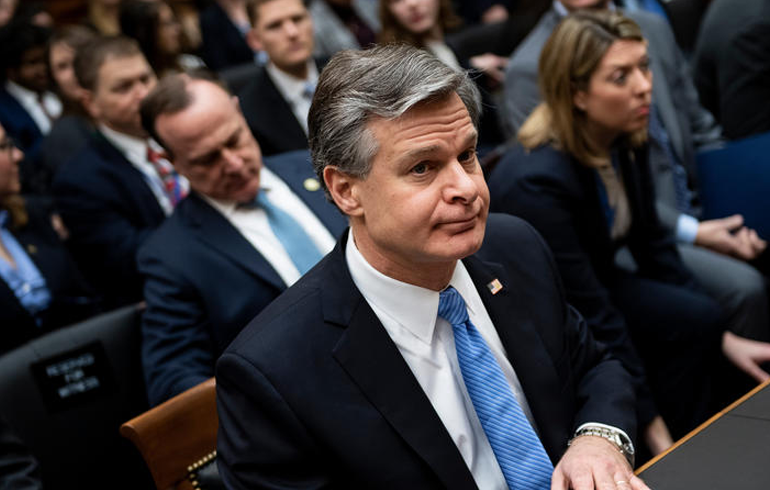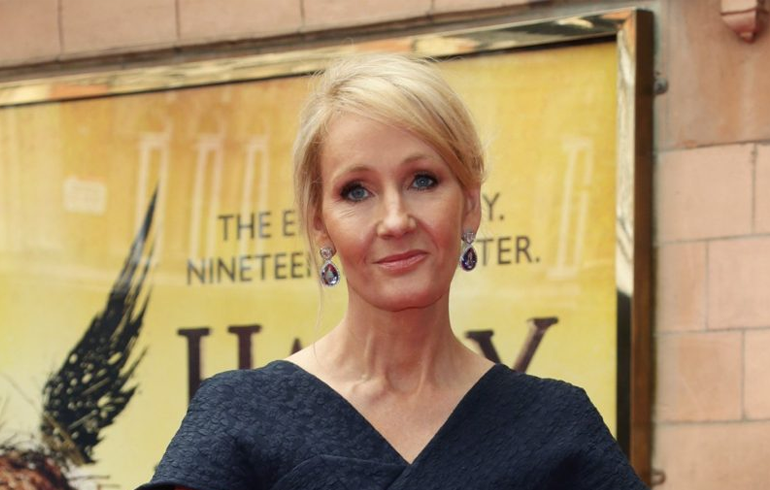The director of the FBI has said that acts of espionage and theft by China’s government pose the “greatest long-term threat” to the future of the US.
Speaking to the Hudson Institute in Washington, Christopher Wray described a multi-pronged disruption campaign.
He said China had begun targeting Chinese nationals living abroad, coercing their return, and was working to compromise US coronavirus research.
“The stakes could not be higher,” Mr Wray said.
“China is engaged in a whole-of-state effort to become the world’s only superpower by any means necessary,” he added.
In a nearly hour-long speech on Tuesday, the FBI director outlined a stark picture of Chinese interference, a far-reaching campaign of economic espionage, data and monetary theft and illegal political activities, using bribery and blackmail to influence US policy.
“We’ve now reached a point where the FBI is now opening a new China-related counterintelligence case every 10 hours,” Mr Wray said. “Of the nearly 5,000 active counterintelligence cases currently under way across the country, almost half are related to China.”
The FBI director mentioned a programme called “Fox Hunt”, which he said President Xi Jinping had “spearheaded” and he said was geared at Chinese nationals living abroad seen as threats to the Chinese government.
“We’re talking about political rivals, dissidents, and critics seeking to expose China’s extensive human rights violations,” he said. “The Chinese government wants to force them to return to China, and China’s tactics to accomplish that are shocking.”
He continued: “When it couldn’t locate one Fox Hunt target, the Chinese government sent an emissary to visit the target’s family here in the United States. The message they said to pass on? The target had two options: return to China promptly, or commit suicide.”
The programme was originally begun in 2015 to target people accused of corruption and has reportedly led to the capture of thousands of fugitives.
However, reports of extraordinary rendition of political opponents by Beijing have multiplied in recent years, starting with Gui Minhai, one of a group of Hong Kong booksellers who disappeared in 2015 and resurfaced in Chinese custody. Unlike the others, Mr Gui disappeared abroad – in Thailand – rather than from Hong Kong itself.
Washington now sees Beijing as global leadership contender
Analysis by Zhaoyin Feng, BBC News Chinese, Washington
This is not the first time FBI Director Christopher Wray has categorised China as a “top intelligence threat” for the US, but on Tuesday he ramped up the criticism by focussing on Beijing’s “whole-of-state effort” to become the world’s only superpower.
It clearly signals that Washington now sees Beijing not only as an aggressive adversary, but also an ambitious contender for global leadership.
Since the Covid-19 outbreak in the US, the Trump administration has attacked China on everything from its initial response to coronavirus to Hong Kong’s new national security law. Mr Wray’s remarks are among a series of hard-hitting speeches by senior US officials on the topic.
The Trump administration says it is now time to wake up from the 40 years of policy failures with regard to China, while critics see this as an attempt to deflect attention from the president’s own failures in office and to increase his chances of winning re-election.
What is certain is that the power dynamics between China and the US have fundamentally shifted, and no matter who will be the next US president, the tense stand-offs of Sino-US relations will inevitably continue.
In the unusual address, Mr Wray asked Chinese-born people living in the US to contact the FBI if Chinese officials target them seeking their return.
The Chinese government has defended this programme in the past, saying it is part of a legitimate anti-corruption effort.
The threat posed by China will be further addressed by the US attorney general and secretary of state in coming weeks, Mr Wray said.
The address comes amid heightened tensions between the US and China.
US President Donald Trump has been highly critical of China amid the coronavirus outbreak, repeatedly blaming the country for the global pandemic. In another move, Secretary of State Mike Pompeo said this week that the administration was looking at banning Chinese apps – including the hugely popular TikTok.
The apps “serve as appendages of the Chinese Communist Party’s surveillance state”, he said.
Source: BBC




















































